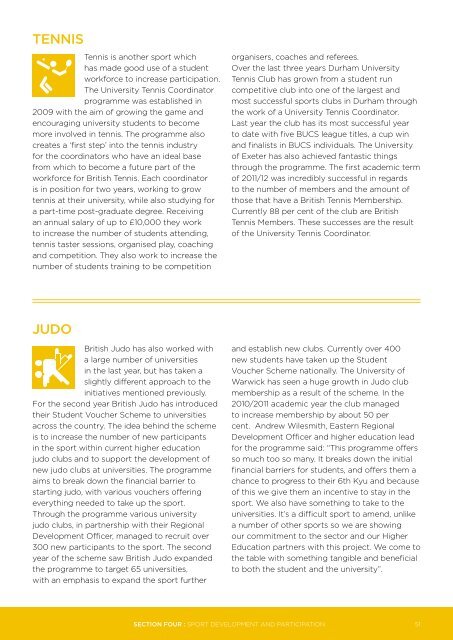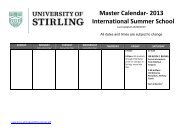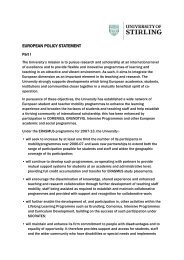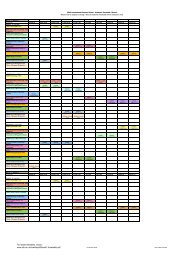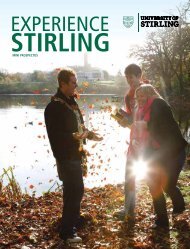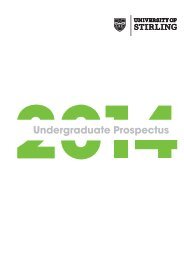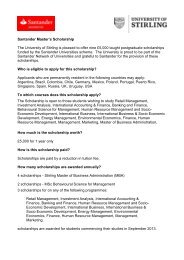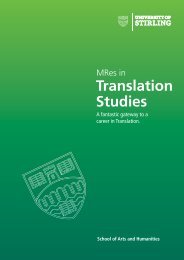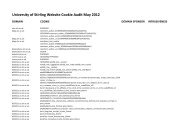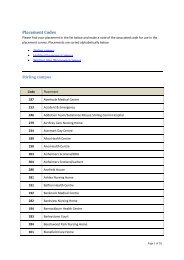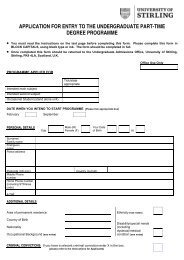Supporting a uK SucceSS Story: The impacT of - Research Councils ...
Supporting a uK SucceSS Story: The impacT of - Research Councils ...
Supporting a uK SucceSS Story: The impacT of - Research Councils ...
You also want an ePaper? Increase the reach of your titles
YUMPU automatically turns print PDFs into web optimized ePapers that Google loves.
Tennis<br />
Tennis is another sport which<br />
has made good use <strong>of</strong> a student<br />
workforce to increase participation.<br />
<strong>The</strong> University Tennis Coordinator<br />
programme was established in<br />
2009 with the aim <strong>of</strong> growing the game and<br />
encouraging university students to become<br />
more involved in tennis. <strong>The</strong> programme also<br />
creates a ‘first step’ into the tennis industry<br />
for the coordinators who have an ideal base<br />
from which to become a future part <strong>of</strong> the<br />
workforce for British Tennis. Each coordinator<br />
is in position for two years, working to grow<br />
tennis at their university, while also studying for<br />
a part-time post-graduate degree. Receiving<br />
an annual salary <strong>of</strong> up to £10,000 they work<br />
to increase the number <strong>of</strong> students attending,<br />
tennis taster sessions, organised play, coaching<br />
and competition. <strong>The</strong>y also work to increase the<br />
number <strong>of</strong> students training to be competition<br />
organisers, coaches and referees.<br />
Over the last three years Durham University<br />
Tennis Club has grown from a student run<br />
competitive club into one <strong>of</strong> the largest and<br />
most successful sports clubs in Durham through<br />
the work <strong>of</strong> a University Tennis Coordinator.<br />
Last year the club has its most successful year<br />
to date with five BUCS league titles, a cup win<br />
and finalists in BUCS individuals. <strong>The</strong> University<br />
<strong>of</strong> Exeter has also achieved fantastic things<br />
through the programme. <strong>The</strong> first academic term<br />
<strong>of</strong> 2011/12 was incredibly successful in regards<br />
to the number <strong>of</strong> members and the amount <strong>of</strong><br />
those that have a British Tennis Membership.<br />
Currently 88 per cent <strong>of</strong> the club are British<br />
Tennis Members. <strong>The</strong>se successes are the result<br />
<strong>of</strong> the University Tennis Coordinator.<br />
Judo<br />
British Judo has also worked with<br />
a large number <strong>of</strong> universities<br />
in the last year, but has taken a<br />
slightly different approach to the<br />
initiatives mentioned previously.<br />
For the second year British Judo has introduced<br />
their Student Voucher Scheme to universities<br />
across the country. <strong>The</strong> idea behind the scheme<br />
is to increase the number <strong>of</strong> new participants<br />
in the sport within current higher education<br />
judo clubs and to support the development <strong>of</strong><br />
new judo clubs at universities. <strong>The</strong> programme<br />
aims to break down the financial barrier to<br />
starting judo, with various vouchers <strong>of</strong>fering<br />
everything needed to take up the sport.<br />
Through the programme various university<br />
judo clubs, in partnership with their Regional<br />
Development Officer, managed to recruit over<br />
300 new participants to the sport. <strong>The</strong> second<br />
year <strong>of</strong> the scheme saw British Judo expanded<br />
the programme to target 65 universities,<br />
with an emphasis to expand the sport further<br />
and establish new clubs. Currently over 400<br />
new students have taken up the Student<br />
Voucher Scheme nationally. <strong>The</strong> University <strong>of</strong><br />
Warwick has seen a huge growth in Judo club<br />
membership as a result <strong>of</strong> the scheme. In the<br />
2010/2011 academic year the club managed<br />
to increase membership by about 50 per<br />
cent. Andrew Wilesmith, Eastern Regional<br />
Development Officer and higher education lead<br />
for the programme said: “This programme <strong>of</strong>fers<br />
so much too so many. It breaks down the initial<br />
financial barriers for students, and <strong>of</strong>fers them a<br />
chance to progress to their 6th Kyu and because<br />
<strong>of</strong> this we give them an incentive to stay in the<br />
sport. We also have something to take to the<br />
universities. It’s a difficult sport to amend, unlike<br />
a number <strong>of</strong> other sports so we are showing<br />
our commitment to the sector and our Higher<br />
Education partners with this project. We come to<br />
the table with something tangible and beneficial<br />
to both the student and the university”.<br />
SECTION FOUR : sport development and participation 51


